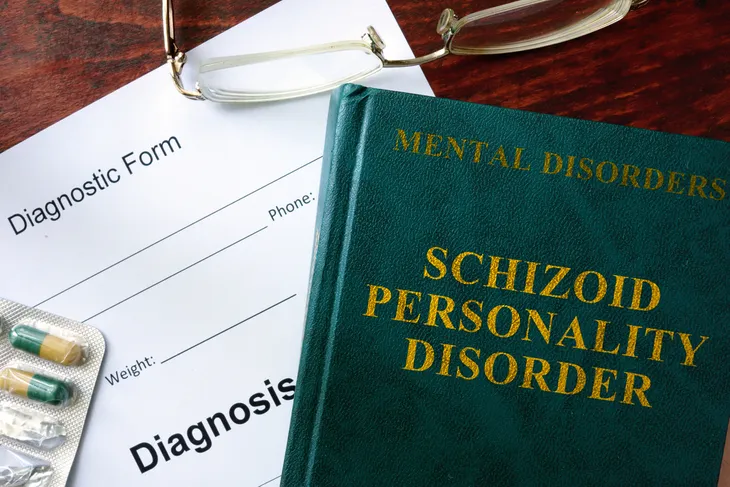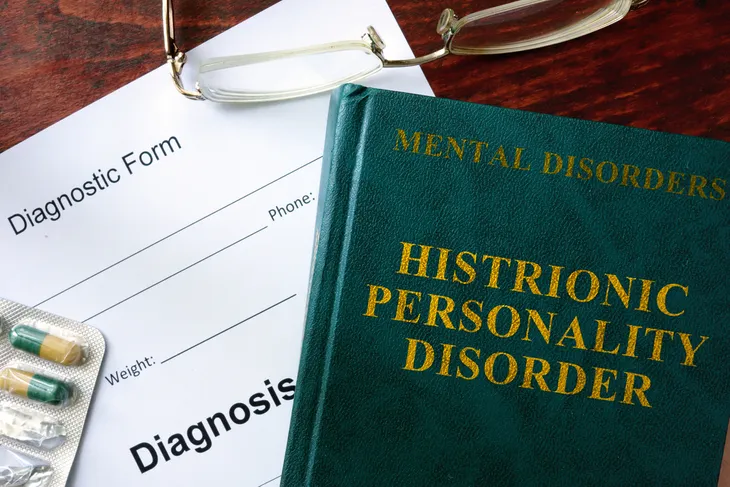Each person has a unique personality that sets him or her apart from all others. It’s a “collection of characteristics or traits that we have developed as we have grown up and which make each of us an individual,” says the Royal College of Psychiatrists, and includes the ways that we think, feel and behave.
With a personality disorder, however, the American Psychiatric Association says these thoughts, feelings and behaviors deviate “from the expectations of the culture, cause distress or problems functioning, and last over time.” There are 10 specific types, all of which have been grouped into one of three categories: Cluster A (odd or eccentric behavior), Cluster B (dramatic, emotional or erratic behavior), or Cluster C (anxious or fearful behavior). Read on to learn about the 10 different personality disorders and the distinguishing behaviors of each.
Cluster A:
Paranoid Personality Disorder
Paranoid personality disorder is characterized by extreme distrust of others, often including friends, family and romantic partners. They tend to believe that these people will use or take advantage of them, so they spend a great deal of time looking for clues to support these suspicions.
Psychology Today adds that someone with this condition “has a strong sense of personal rights,” in that they are “overly sensitive to setbacks and rebuffs, easily feel shame and humiliation, and persistently bear grudges.” As a result, they struggle to build close relationships with others or confide in them.
Schizoid Personality Disorder
According to Psychology Today, “the term ‘schizoid’ designates a natural tendency to direct attention towards one’s inner life and away from the external world.” Because of their preference to be alone, they tend to spend a great deal of time fantasizing.
People with schizoid personality disorder are also entirely disinterested in building social relationships with others, and can seem detached and cold due to their limited range of emotional expression.
Schizotypal Personality Disorder
Similar to schizoid personality disorder, those with schizotypal personality disorder tend to “exhibit a consistent, long-term pattern of severe social and relationship limitations,” says HealthyPlace.com. They also prefer social isolation and will engage in solitary activities.
What differentiates these two conditions is that people with schizotypal personality disorder also experience cognitive or perceptual distortions. MentalHelp.net indicates these distortions can include “noticing flashes of light no one else can see, or seeing objects or shadows in the corner of their eyes and then realizing that nothing is there.” Additionally, the source says that they may have odd beliefs, such as being able to “read other people’s thoughts, or that that their own thoughts have been stolen from their heads.”
Cluster B:
Antisocial Personality Disorder
Antisocial personality disorder is characterized by a long-term pattern of disregard for others’ rights or feelings. This can include lying, stealing and manipulation, for which the individual will feel no sense of guilt.
They will often place themselves in dangerous or risky situations, without having considered the consequences. As a result, they tend to have problems with the law and may spend their lives in and out of prison.
Borderline Personality Disorder
With borderline personality disorder, Psychology Today says “the person essentially lacks a sense of self, and, as a result, experiences feelings of emptiness and fears of abandonment.” Because of this, they tend to have unstable relationships, as they constantly feel worried about people leaving them—whether these fears are real or perceived.
They also experience extreme emotions, which Mind.org.uk says can “last from a few hours to a few days and can change quickly,” such as “feeling very happy and confident in the morning to feeling low and sad in the afternoon.” Outbursts of anger and aggression are also common.
Histrionic Personality Disorder
According to HealthyPlace.com, people with histrionic personality disorder “behave in highly emotional and dramatic ways in hopes of drawing attention to themselves.” These individuals are often known as ‘drama queens,’ and will do what is necessary to ensure they are the center of attention, as they feel uncomfortable when they are not.
To gain this attention, the Mayo Clinic indicates they will act “excessively emotional, dramatic or sexually provocative,” and that they tend to be very concerned about their physical appearance. They also seek constant approval from others, and are incredibly sensitive to criticism and rejection.
Narcissistic Personality Disorder
People with narcissistic personality disorder posses an extreme sense of self-importance, believing that they are special and therefore deserving of being treated in such a way. They may also have inflated ideas about their talents, intellect and attractiveness.
Because of these beliefs, MentalHelp.net says they tend to “disregard and disrespect the worth of those around them,” which can lead to “conflictual relationships that are often superficial and devoid of real intimacy and caring.”
Cluster C:
Avoidant Personality Disorder
Also known as anxious personality disorder, people with this condition struggle with deep feelings of inadequacy and inferiority. They believe they are socially inept, and therefore avoid work or events that require being around others.
They are also extremely sensitive to criticism, embarrassment or rejection, which is why they tend to avoid meeting new people and engaging in new activities. To others, this behavior is perceived as extreme shyness, which MentalHelp.net says “will likely interfere with their ability to make friends, or to move ahead professionally.”
Dependent Personality Disorder
According to Psychology Today, dependent personality disorder, as its name implies, “is characterized by a lack of self-confidence and an excessive need to be looked after.” People with this condition tend to be quite ‘clingy’ and struggle to make decisions without reassurance from others.
Due to their fear of being left alone to fend for themselves, they have a hard time standing up for themselves or disagreeing with others. As a result, they are often tolerant of poor or abusive treatment.
Anankastic (Obsessive-Compulsive) Personality Disorder
Despite having very similar names, obsessive-compulsive personality disorder is not the same as obsessive-compulsive disorder. The Canadian Mental Health Association characterizes anankastic personality disorder as “constantly needing things to be orderly and of wanting to be in control.”
Individuals with this condition also struggle with perfectionism that is so extreme the Mayo Clinic says they may be unable to finish a project because they cannot meet their own strict standards. These high standards also place strain on personal relationships with co-workers, friends and family, who may struggle to measure up.













